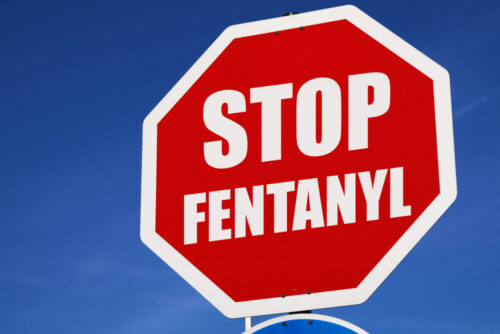Drug abuse, drug addiction, and drug overdoses are all part of the world we live in, however, reducing all three should be a top priority for governments and healthcare professionals alike. One way to avoid all three, or at least reduce the negative effects and possibilities of serious health issues, is for people to seek treatment as soon as possible when they believe Substance Use Disorders are affecting their lives or the life of one of their loved ones. Drug detox programs, including opioid detox care options and specifically Fentanyl detox protocols, can all be a part of the solution.
Contact The Detox Center of Los Angeles today at (888) 346-4350 to learn how to access our addiction treatment programs
If you are not sure if Fentanyl detox is a necessary step for you or one of your loved ones, give us a call today at The Detox Center of Los Angeles. We have multiple levels of care and many types of treatment to choose from regarding Substance Use Disorders.
Why Fentanyl Detox is Necessary
No one ever wants to have to consider beginning treatment for drug abuse or drug addiction. The fact is that over 20 million people in the United States alone struggle with an active Substance Use Disorder means there is a real and present need for substance abuse treatment. Deciding what types of treatment will work for you and help you make a major change in your life can sometimes be complicated. That is why it is a great idea to consult a professional organization like The Detox Center of Los Angeles even if you are not sure if you are ready to begin treatment yet. We are here and ready to answer any questions you may have about the services we offer, levels of care, treatment environments, lengths of treatment, and any other aspects of rehab from detox to aftercare programs.
Fentanyl detox is necessary for specific situations regarding a person’s use of this powerful synthetic opioid drug. Fentanyl is 50 to 100 times more potent than Morphine, which is already a very strong pain medication. Drug detox in general is necessary when someone has been abusing a substance and has developed a dependency or an addiction. Dependence refers specifically to the physical symptoms developed and addiction is more encompassing and takes into account the mental, physical, and emotional effects of prolonged drug or alcohol use. In either of these cases, Fentanyl detox is necessary in order to rid an individual’s system of all substances and toxins before they begin drug or alcohol abuse rehab and counseling.
Signs of Fentanyl Withdrawal
There are a number of ways a person can be exposed to the possibility of Fentanyl abuse. These risk factors cover everything from legitimate use of the prescription opioid to a next step in someone’s journey as a drug abuser. Regardless, Fentanyl use can be dangerous. Here are some of the risk factors that could lead to Fentanyl abuse, dependency, and addiction:
- Suffering from a condition for which Fentanyl was prescribed
- Being in an environment where drug and/or alcohol abuse is commonplace
- Having a novelty-seeking personality type
- Having an impulsive temperament
- Prior experience with abusing other substances
- Having easy access to obtaining Fentanyl
- Family history of substance abuse and addiction
When a person has begun abusing Fentanyl and has either transitioned or is on the cusp of transitioning into a state of being addicted, there are signs and symptoms of their drug abuse. Some of these symptoms are common to other drugs, especially other synthetic opioids, and some are specific to Fentanyl. There are also several categories of Fentanyl abuse symptoms, including behavioral, physical, cognitive, and psycho-social. Here are a few of the signs of Fentanyl Use disorder that you should be aware of if you think one of your love ones has been abusing the drug:
- Frequent absences from work or school
- No longer taking care of daily responsibilities
- Slurred speech
- Forging prescriptions in order to obtain Fentanyl
- Declined performance in work or at school
- Psychomotor agitation
- Constricted pupils
- Insomnia
- Impaired judgment
- Attention difficulties
- Concentration difficulties
- Suicidal ideation
- Euphoria, typically followed by apathy
- Depression
Depending on several factors, withdrawal symptoms can begin within hours of someone’s last use of a substance they have been abusing and become dependent on or addicted to over time. That is why it can be very important when an individual has decided to seek treatment for them to have already contacted a rehab facility with detox programs to receive support immediately. Here are some of the Fentanyl withdrawal symptoms a person may experience when they stop using the drug:
- Dysphoric mood
- Intense cravings for more Fentanyl
- Nausea
- Vomiting
- Insomnia
- Sweating
- Dilated pupils
- Diarrhea
- Aching muscles
- Fever
Additionally, there are signs which may indicate that a person is experiencing an overdose after they have taken Fentanyl. These symptoms should be taken seriously as lethal Fentanyl overdoses have been a big part in the spike in deaths related to the ongoing opioid epidemic in the United States. Here are some to watch out for in yourself and those around you:
- Slurred speech
- Cold, clammy skin
- Shallow or labored breathing
- Inability to think or talk in a usual manner
- Confusion
- Inability to walk
- Disorientation
- Extreme sleepiness
- Severe dizziness
If any of these signs are detected, a person should seek or be taken to somewhere they can receive medical attention immediately.

How Does Fentanyl Detox Work?
A person is kept safe and as comfortable as possible during detoxification, or medically managed withdrawal, as their body detoxifies itself of Fentanyl and any other opioids, toxins, and substances the patient may have been using. Since medical detox from opioids is frequently insufficient to support long-term recovery, it is often the initial step in a more extensive treatment approach. In order to help patients find lasting recovery beyond detoxification and withdrawal, treatment is individualized based on each patient’s particular needs and the severity of their opioid use disorder. It also uses evidence-based behavioral therapies, individual and group counseling, and medications for addiction treatment.
The length of time a person needs to go through drug detox when they are addicted to Fentanyl can vary. If they do not need a substitute drug like Methadone or Suboxone, it could take as little as one to two weeks. As mentioned above, this will not remove the cravings and triggers a person will experience even after detox, which is why substance abuse rehab treatment is highly recommended.
Benefits of Detox on Health and Recovery Success
Fentanyl detox as part of a safe, supervised program can be an excellent building block for someone’s long term sobriety. As many drug detox programs offer abuse counseling of one type or another during the detox process, by taking part in a monitored care plan an individual can have a head start regarding their overall continuum of care and road to recovery.
Find Help with Addiction at The Detox Center of L.A.
The Detox Center of L.A. has several options when it comes to Fentanyl detox and addiction treatment. If you or one of your loved ones is struggling with Fentanyl abuse or addiction, please give us a call today. Our outstanding staff of counselors and therapists can assist you with choosing the types of treatment that will be right for you.
The post Benefits of a Fentanyl Detox Program first appeared on The Detox Center of Los Angeles.
from The Detox Center of Los Angeles https://thedetoxcenterla.com/blog/benefits-of-a-fentanyl-detox-program/
via IFTTT

No comments:
Post a Comment